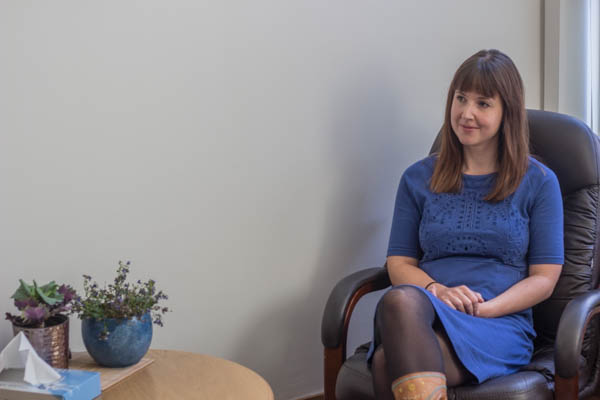Emergency counselling sessions have seen an 18.6 per cent increase in 2016/17 from the previous year, according to a new report from Trinity’s Student Counselling Service, seen by The University Times.
While the service has seen an overall uptake in one-on-one appointments, workshops and online sessions, the steep and continued rise in emergency appointments was the starkest figure in the annual report for the last academic year. In 2015/16, 429 emergency appointments were used, which increased to 509 this year. However, this marks a nearly 200 per cent increase in the use of the appointments since 2011, when only 170 were made.
In an email statement to The University Times, Chuck Rashleigh, a counsellor and the Evaluation and Research Coordinator for the service, said that he could not give a reason for the rise, but added that there is “an international conversation happening about this, but I don’t think anyone has figured it out”.
Last December, in an email to The University Times, Rashleigh described emergency appointments as “increasingly resource-intensive”. The counselling service sets aside one hour a day for emergency appointments. Rashleigh noted last year that “the number of attended emergency appointments now well alone exceeds days of the year”.
The report also highlights that due to 219 students listing the counselling service as a reason they remained enrolled in Trinity, there was a €1.75 million net benefit to Trinity. Rashleigh explained that this was calculated by taking the average income per student for the university – about €8,000 – and then multiplying it by the number of students who stayed in college thanks to the service last year.
The number of students using the counselling service’s one-on-one appointments also increased again this year, with 1,750 students using the service, 32 more than 2015/16. The report indicates that more than 10 per cent of students in Trinity use the Student Counselling Service. Overall, for the 2016/17 academic year, 7,400 one-on-one counselling sessions took place, with a 27.8 per cent increase since 2013 in the number of students using one-to-one appointments.
Another element of the service is the Student2Student (S2S) volunteer service, which has continued to grow over the last two years. There has been a near 15 per cent increase in the number of volunteers signing up to be mentors with the service – which supports first-year students – over the last two academic years. The increase in mentors means that over 5,140 incoming students have been reached by the service, a 35 per cent increase since 2014/15.
Earlier this year, the service introduced an online service called Headspace. This new service is for students with mental health issues such as anxiety, depression or anyone with a low mood. The hope was to spread a sense of well-being and positive mental health in College, by utilising social media, workshops and online supports.
Rashleigh said that Headspace “is the banner for all SCS outreach and prevention activities”. Over the year, they’ve held talks and events, such as a lecture co-hosted by activist and comedian Blindboy Boatclub and Trinity College Dublin Students’ Union (TCDSU). He also pointed to the consent workshops delivered in partnership with TCDSU and online counselling out-reach like SliverCloud as important activities run by the service. Last year, nearly 2,300 students were reached with Headspace.
In June, Trinity agreed in principle to fund a new doctor for the College Health Service and a new counsellor for the Student Counselling Service. In the past, Provost Patrick Prendergast has pointed to the higher education funding crisis as one of the reasons for the under-funding of student services in Trinity. The College has committed to working with TCDSU on how to fund the two new positions. The union said the introduction of a new counsellor would allow for 1,000 more counselling appointments.







